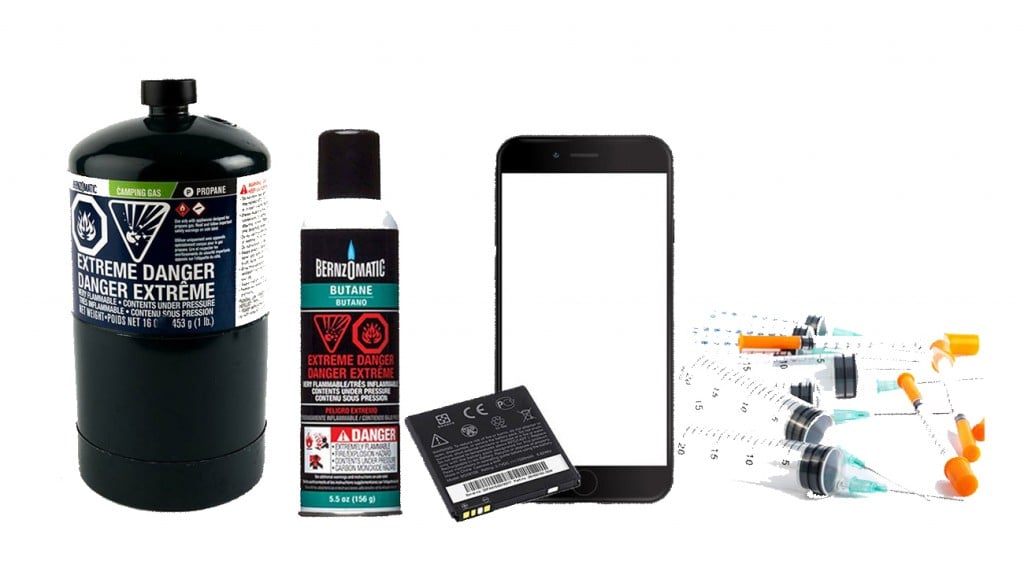Don't put bullets, batteries or bear spray on the curb
Recycle BC reminds the public that explosive and dangerous materials don't belong in residential packaging and paper recycling

Recycle BC is sounding the alarm over the rising number of explosive and hazardous materials British Columbia residents are placing in the province's residential packaging and paper recycling. BC's major recycling collectors and processors have seen seven fires in 2019, with several of them having endangered lives and forced the temporary closure of facilities.
"Hazardous materials present a very real danger for workers in BC's recycling industry. They can cause explosions and fires, and most of these incidents are caused by residents placing items such as lithium-ion batteries and propane or butane canisters into the residential recycling," said David Lefebvre, Director of Public Affairs for Recycle BC. "Earlier this month a resident put 58 rounds of live ammunition into their recycling. We need people to think before they put something that is potentially explosive and deadly into a recycling bin."
Recycle BC audits of materials in 2019 found two thirds of container loads had hazardous materials present, a 47 percent increase over the last five years. Hazardous materials include:
- Butane and propane cannisters
- Batteries (especially lithium-ion batteries)
- Compressed gases
- Ammunition
- Knives
- Sharps
- Bear spray.
Fires are such a significant issue to recycling companies that material receiving facilities often have special teams trained to respond to fires quickly. The number of fires could be significantly higher if these teams were not on hand to manage smoldering materials. While they are able to put out the majority of incidents before they become unmanageable, the potential for injury and significant damage to the recycling system is high. Last year the waste industry reported three deaths and 13 injuries across North America due to these types of incidents.
"Hazardous materials have a significant impact on our staff. We are concerned about their safety and the potential for someone to be injured or worse," said Alisa Murray, Health and Safety Coordinator at Cascades Recovery.
Across North America, the industry saw a 26 percent increase in the number of fires in waste and recycling facilities in 2018, with 371 unique incidents reported between February 2018 and January 2019. The risk of fires or explosions is especially high for material collection vehicles and receiving facilities due to the presence of significant amounts of paper. The combination of easily flammable material, plenty of oxygen and large amounts of material sorted into piles where sparks can smolder for lengthy periods of time undetected makes the presence of hazardous material especially precarious.
"Sorting and recycling processes are fast-paced, with material constantly getting moved, compacted, and crushed." said Oleg Vinokurov, Industrial Engineering Manager at Green by Nature. "A recycling baler can develop pressures of hundreds of pounds per square inch. Compacted at these pressures, any compressed gas cylinder becomes a potential bomb for our employees."
Residents should dispose of hazardous materials properly, which means many of these items should not only be kept out of the residential packaging and paper recycling system but also out of the waste system as well. For questions regarding where to recycle hazardous materials nearby, residents can contact the Recycling Council of British Columbia at www.rcbc.ca or 604-732-9253 (Lower Mainland) / 1-800-667-4321 (toll-free).



